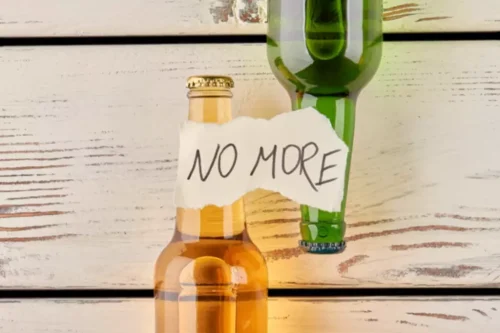
Dopamine is a neurotransmitter that works with the reward center of your brain, making you feel pleased, satisfied, and motivated. Whenever you get that rush of pride after accomplishing something, dopamine is probably surging in your brain. In fact, it’s there after you do anything that makes you feel rewarded, like earning money, eating good food, or having sex. You may find relief by improving your diet and sleep regimen, adding creativity to your daily life, and taking proper (phoneless!) breaks throughout the day. Research from 2015 has shown that exercise may relieve chronic pain and fatigue.
Join The Mental Health Community You’ve Been Dreaming Of

Alcohol-related brain fog can generally last several days to weeks after quitting drinking. You must prioritize self-care and engage in healthy habits to support cognitive function during this time. It’s important to note that not all individuals who quit drinking will experience all of these symptoms or even brain fog. However, those who do may find these symptoms significantly impacting their daily lives. If you or someone you know is experiencing symptoms of alcohol-related brain fog, seeking help and support from a qualified healthcare professional is vital. The right treatment can help you overcome brain fog and promote long-term recovery.
How Long Does Brain Fog Last After Quitting Alcohol?
That means no computers or TV’s since they emit blue light, a known suppressor of melatonin production. Also, sleeping with an essential oil diffuser provides soothing aromas and low, rhythmic noise to help lull you to sleep. The cognitive dysfunction can impact your alcohol withdrawal brain fog life negatively, affecting your career, relationships, and overall motivation. Spending time in nature has been shown to have many benefits for brain health. You can also try using a light therapy box that emits bright light to help improve your brain function.
How to Stop an Addiction – Proven Strategies
- Alcohol increases the effects of gamma-aminobutyric acid (GABA), for example.
- Try our free 3-minute quiz and get a personalized plan and free trial to see how it will work for you.
- Seniors should commit to their sobriety, stay positive, and look for support from loved ones.
- Heavy drinking for females is eight or more drinks per week and 15 or more drinks per week for males.
- In fact, many people with alcohol use disorder (AUD) who go through the detoxification process experience prolonged brain fog.
- So when you’re managing stress or anything to do with your mood, you can be sure that dopamine is involved.
Let a healthcare provider know if you experience brain fog, especially if it’s disruptive to your daily activities and routine. You might want to talk to a provider if you frequently forget about appointments, have trouble completing ordinary tasks or find it difficult to pay attention when someone’s talking to you. Brain fog is common, and a provider can help you find out what’s causing your symptoms. These changes also help to rewire your brain away from thinking of alcohol as a reward, reducing the risk of a relapse to heavy drinking the longer you stay away from alcohol. Of course for long-time heavy drinkers, this usually takes abstinence or very low levels of drinking, including a difficult withdrawal period.
Blood-sugar levels
- The journey to recovery involves managing withdrawal symptoms, making healthier lifestyle choices, and exploring various treatment options including therapy, counseling, medication, and detox programs.
- When alcohol is consumed, it enters the bloodstream and crosses the blood-brain barrier, directly affecting the brain’s neurotransmitter systems.
- She seeks to improve quality of care, collaborate with other providers and make sure participants receive the care they deserve.
Our experts continually monitor the health and wellness space, and we update our articles when new information becomes available. Caffeine can cause jitters, headaches, insomnia, upset stomach, and rapid heart rate, especially if you have a caffeine sensitivity. Because of this, the Food and Drug Administration recommends no more than 400 milligrams, or 4 to 5 cups, of coffee per day. We exist in a culture where it’s socially acceptable to consume caffeine and alcohol, especially in moderation.
[Podcast] Episode 8: Harm Reduction in Alcohol Health with Expert Dr. Andrew Tatarsky
It’s often characterized by confusion, forgetfulness, or a lack of mental clarity. Dr. Robinson is passionate about providing personalized care to patients of all ages, including seniors. He practices patient-centered care to help WelbeHealth participants live their healthiest lives. In addition to his Doctor of Medicine (MD), Dr. Robinson holds a Master of Public Health (MPH) https://ecosoberhouse.com/ and previously served as a Clinical Assistant Professor and Assistant Program Director at UCLA. Julio served as a Medic in the United States Airforce before transitioning to registered nursing and now serves as a Family Nurse Practitioner. With nearly 20 years of clinical experience, he has provided care to patients of all ages with acute and chronic health conditions.

Clinically, Warren has developed a therapeutic skillset that utilizes a strengths-based perspective, Twelve Step philosophies, Cognitive Behavioral Therapy and Motivational Interviewing. Mindfulness meditation can help you cope with the anxious feelings that can arise with too much alcohol. If you aren’t sure where to start, plenty of online recordings provide simple guided meditations to slow racing thoughts and encourage internal peace. Breathing exercises regulate the heart rate and instill much-needed calm. Paul is passionate about high-quality addiction treatment and truly believes that, with the right treatment, anyone can recover.

What Does Relapse in Recovery Mean and How to Prevent It
- It’s characterized by confusion, forgetfulness, or a lack of mental clarity.
- In fact, research has shown that regular exercise can help improve brain function and reduce brain fog.
- Dr. Alexander doesn’t shy away from tough conversations and her patients know she will help keep them on track.
- We’ve all made the connection between sleep and tiredness, but the effects of sleep deprivation on the brain and body are extensive.
- In addition to physical exercise, it’s also important to exercise your brain.
- If you or someone you know suffers from alcohol use disorder, Pacific Crest Trail Detox is here to offer quality, budget-friendly, and compassionate assistance.
Before we dive into alcohol’s impact, it’s important to remember that the amount you drink completely changes its overall effect on your brain health. But, there is some evidence showing that light and moderate drinking may have its upsides too. If you’re trying to cope with drinking too much, talk with your healthcare professional. Sometimes, brain fog is less related to slow brain function and due more to overactive brain activity, such as over-analyzing a simple situation or obsessing about a problem.
Alcohol Brain Fog
In addition to these therapies, medication and lifestyle changes can also be beneficial in addiction treatment. Medications such as Naltrexone and Acamprosate can help reduce cravings and prevent relapse, offering a powerful tool in the fight against addiction. These resources can all be great tools for treating alcohol addiction and brain fog. By committing to long-term sobriety, you can give your brain the chance to heal and witness the positive changes in your brain fog symptoms.





